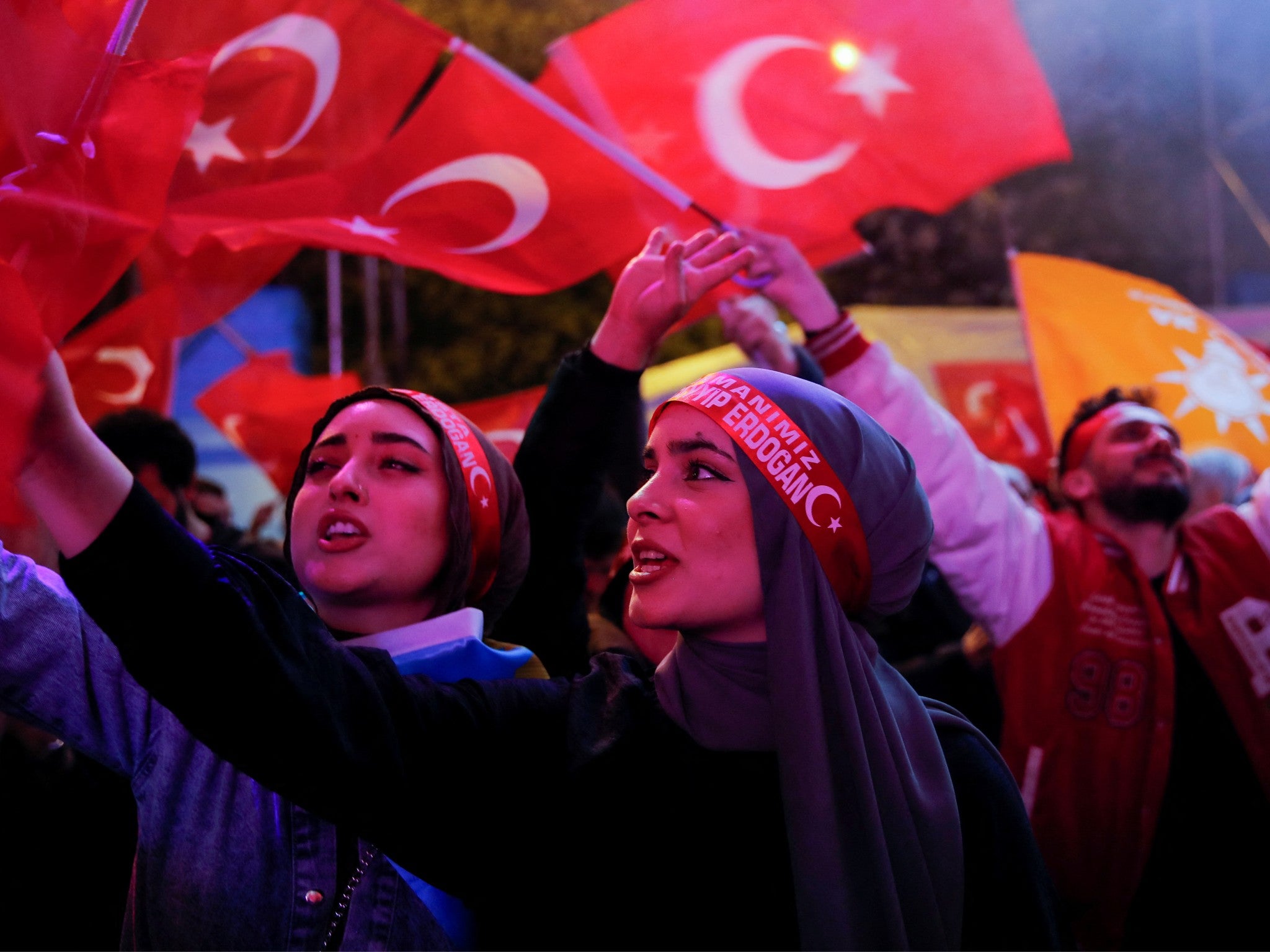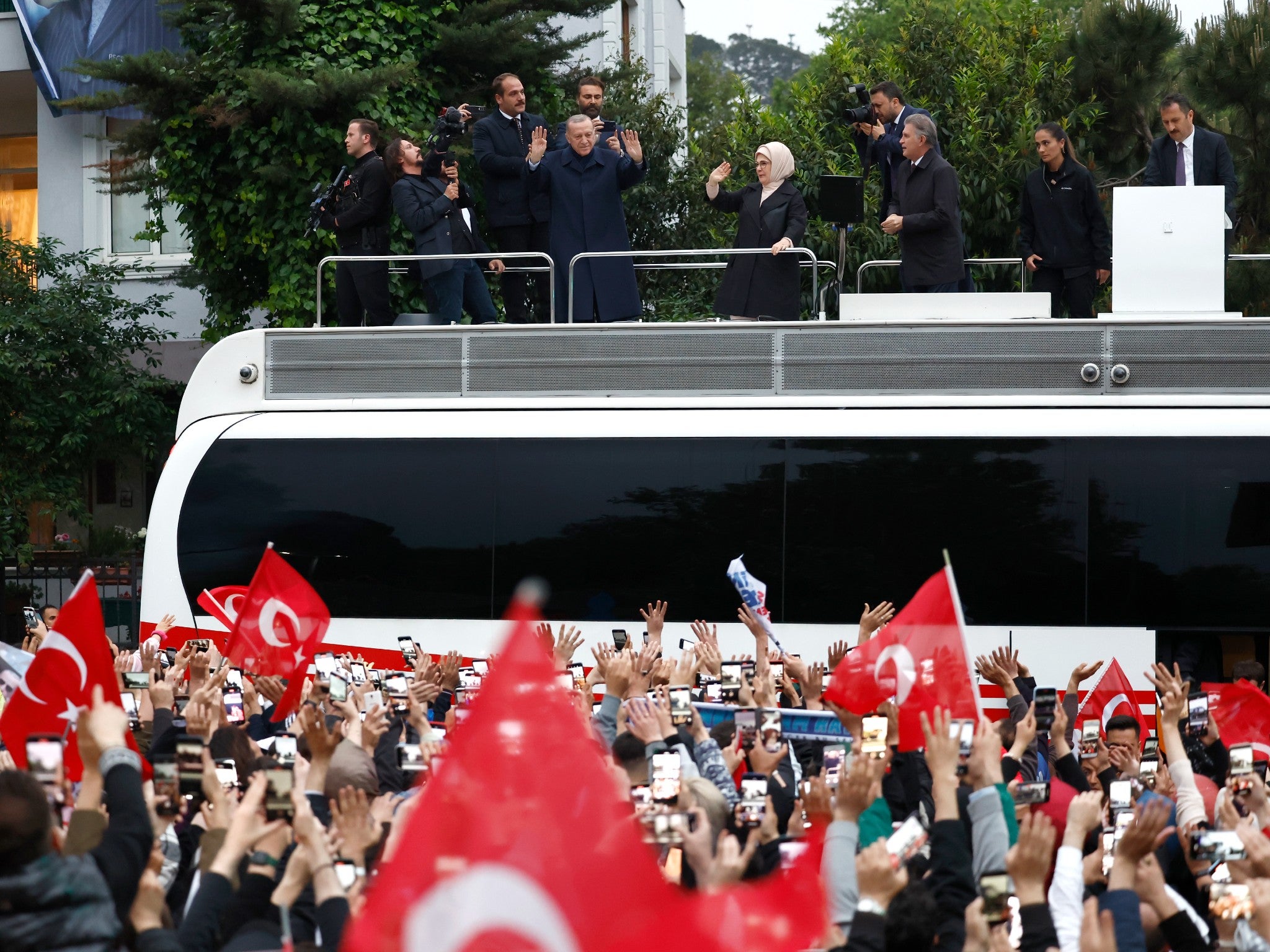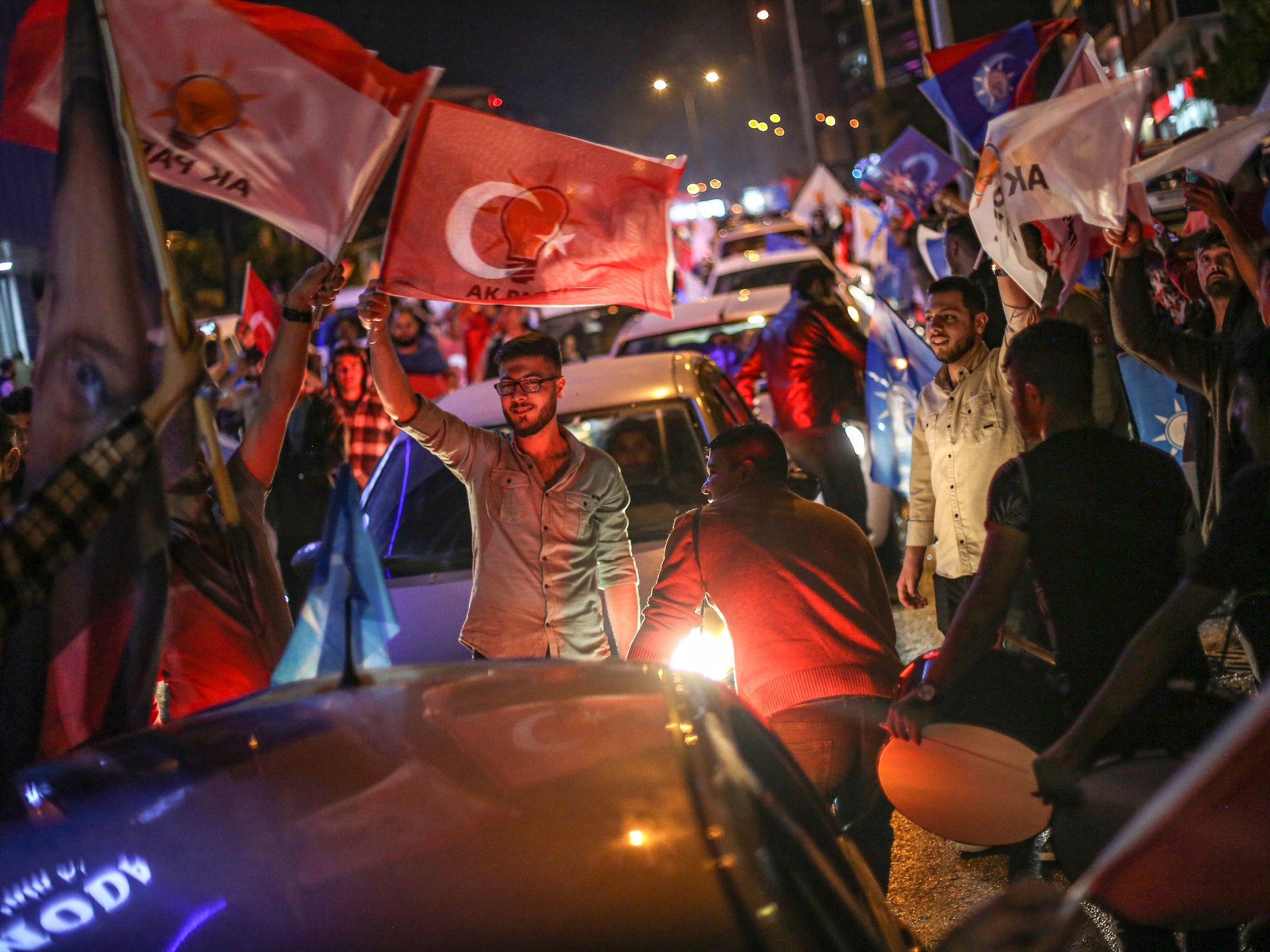Only Erdogan knows his plans for Turkey’s future. That is the problem
Recep Tayyip Erdogan has turned Turkey into a one-man show across his time in power. So, asks Borzou Daragahi, what does that mean for the next five years?


Recep Tayyip Erdogan has claimed another five-year term as president, one which would extend his increasingly autocratic rule to a quarter century – after one of the biggest challenges he has faced in that time
Mr Erdogan claimed 52 per cent of the vote against the 48 per cent gained by challenger Kemal Kilicdaroglu. The result, on the centenary of Turkey’s founding as a republic by Mustafa Kemal Ataturk, will have a profound symbolic impact on the country, with Mr Erdogan saying that it opens the door to a “century for Turkey”.
Given Turkey’s geographic position as a bridge between West and East, the extension of Mr Erdogan’s reign will also have an impact on a number of global issues including the war in Ukraine, deliberations over the expansion of Nato, and the rivalry between the United States and China.
The vote result demonstrates that, despite the election defeats of Javier Bolsonaro in Brazil and Donald Trump in the US in recent years, the type of personality-based populist politics exemplified by Mr Erdogan persists. Some of the first world leaders to congratulate him, even before the official final vote tally was announced, included other strongman politicians like Russia’s Vladimir Putin and Hungary’s Viktor Orban – as well as Mr Trump himself.
Diplomats and Turkey watchers have been debating for weeks whether Mr Erdogan might increase domestic repression, or harden Ankara’s foreign policy across another term. Over the years, Mr Erdogan has shown flexibility in both domestic and international affairs, although there can be no doubt about the crackdown on dissent within the country.

During the first years of his rule, he depicted himself as a champion of LGBT+ and minority rights, including defending Turkey’s embattled Kurdish population, before shifting course and embracing hardcore nationalist values. On relations with Saudi Arabia, Israel, Russia, Armenia, Egypt and the UAE, he has made dramatic foreign policy U-turns over strengthing or weakening ties whenever it has suited his political needs. For example, Mr Erdogan has caused unease among Western allies by his continued closeness to Mr Putin in the wake of Moscow’s invasion of Ukraine, but his nation has also acted as a mediator in a grain deal that has helped keep some Ukrainian exports flowing.
So what can we expect now? Few believe there will be dramatic changes in either domestic or foreign policy – not least as Mr Erdogan has spent much of recent years consolidating power into the presidency. That is despite a narrow victory that signals a waning of Mr Erdogan’s popularity and broad dissatisfaction with the country’s direction.
The 69-year-old may spend the next five years attempting to burnish his legacy with more great public works projects, like iconic bridges and mosques that have transformed the country’s geography. It is something he has become known for. It is likely that he further cracks down on enemies at home – perceived or not – and hit out at rivals abroad. Ultimately, the future is in the hands of one man: Erdogan. It is he who has refashioned Turkey’s parliamentary democracy into a presidential system – with few checks and balances.
“He does sometimes hold a grudge and he takes things personally,” says Paul Levin, a Turkey scholar at Stockholm University. “Both emotionally and in terms of worldview, Erdogan doesn’t place Turkey naturally in the Western fold. But he’s also a pragmatic politician. With no more elections over the next five years and control over the media. Why should we expect a big change? I expect more of the same.”
Mr Erdogan’s greatest weakness may be Turkey’s economy. Inflation has run rampant and the value of the currency has been decimated by his own controversial insistence on keeping interest rates low. Aside from Islamic hostility to interest rates, the low rates were meant to keep growth high and ensure those big projects keep getting built. Post-election, some wonder if he might allow a return to more orthodox economic policies. But there may be little Mr Erdogan can do that will restore the investor confidence that made Turkey a magnet for foreign capital in the first decade of the century.
“He can do anything on interest rates and it might not make a difference,” says Seren Selvin Korkmaz, executive director of the Istanpol Institute think tank. “The problem is the deinstitutionalisation of Turkey. If you have this kind of presidential system with one-man rule and without checks and balances you cannot create a secure economic environment.”

Mr Erdogan faced a run-off for the first time in his career. His Justice and Development Party (AKP) lost seats in parliament, though retained a majority, and he squeaked to victory despite control of major media and the country’s purse strings. The president himself has acknowledged the need to assess the reasons for the weakening. He and his party have repeatedly struggled to connect to young voters who have never known a Turkey without Mr Erdogan as leader. But there is little need now to change that, although this election has shown that Turkey is a deeply divided country.
“He cannot change after all these years,” says Nevsin Mengu, an independent political analyst and broadcaster. “I think he’s laughing at his opponents... The next five years will not be a bright time for women or the LGBT+ community... We need to try to survive these coming years. That’s all.”
His next political challenge will be municipal elections next year. Will there be an attempt to remove the popular Istanbul mayor Ekrem Imamoglu from office following his conviction on charges of insulting election officials in 2019 – a ruling that supporters have called politically motivated. If that were to happen, replacing him with a pro-Erdogan caretaker might anger voters but also eliminate a potentially powerful future political competitor. But pushing too far might draw the anger of the West, which has warmed to Imamoglu. “The EU and US have been holding their breath and showing restraint,” says Mr Levin. “Now that Erdogan won, you might see a tougher posture on a number of issues [in Turkey].”
That may include demands for an improvement in the country’s human rights record and adherence to the rule of law. But it may also include possible sanctions for doing business with Russia. The West may also put economic pressure on Mr Erdogan to approve Sweden’s entrance into Nato, which Ankara – in possession of the military alliance’s second-largest army – has resisted. “There’s no need [for] the West to worry any more about appearing to back the opposition,” Mr Levin says.
Some experts have pointed to Turkey’s particular economic vulnerabilities as potential pressure points. Turkey’s hard currency reserves are estimated to have fallen into negative territory as Mr Erdogan splurged on populist giveaways – salary hikes and currency interventions – ahead of the vote. Now the bills will need to be paid. Although Russia, China, Saudi Arabia, Qatar and the United Arab Emirates may continue to prop up Turkey’s economy with central bank deposits and deferred payments, they may demand costly concessions that may not resolve any of the country’s underlying economic ailments.
Only Europe and the United Kingdom, Turkey’s biggest trade partners and the most lucrative markets for its goods and services, have over the decades shown a willingness to invest in the manufacturing, finance, textile and tech sectors that Turkey needs to generate jobs.
With elections now over, Washington, London, and Brussels may run out of patience with Mr Erdogan and his erratic moves. Although the result suggests that Mr Erdogan can put faith in the public support for his own brand of diplomacy that is built around his strong personality.
“I think Erdogan has learned how he can use foreign policy for domestic purposes,” says Ms Korkmaz. “Personalised foreign policy will continue.”
A combination of fiscal weakness, political repression and isolation from the West may also exacerbate Turkey’s brain drain, as tens of thousands of the country’s brightest young people angle to head abroad.
Foreign language institutes in Turkey say they are inundated with young ambitious Turkish professionals eager to learn French or German and head to Europe. Western diplomatic outposts are flooded with visa requests by Turks hoping to study or work anywhere but Turkey.
At polling centres on election day, those who opposed Mr Erdogan were grim about the future. “The way things are going, this will be the last free elections,” says Gokhan Canbey, an unemployed 35-year-old, after casting his vote for Kilicdaroglu in central Istanbul. “There is no justice, freedom or rule of law. Income inequality is too high. There is nothing we can do. We’ll wait five years.”






Join our commenting forum
Join thought-provoking conversations, follow other Independent readers and see their replies
Comments